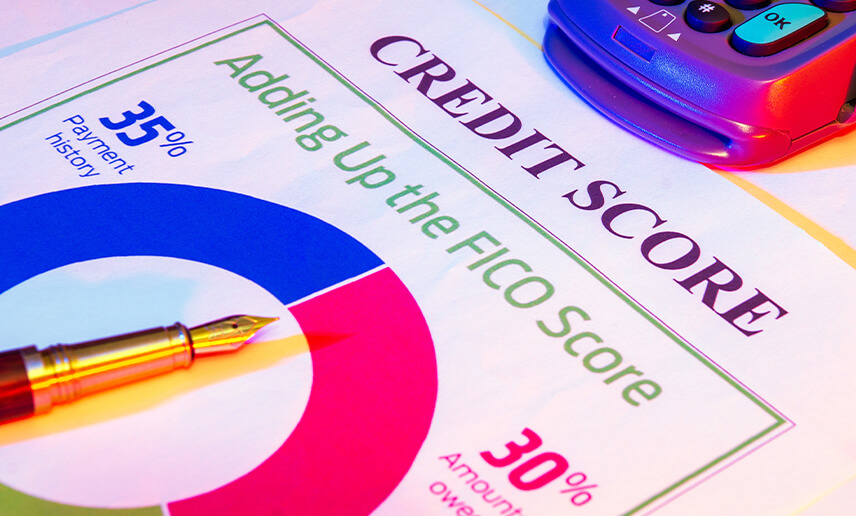The Effects of Bankruptcy on Credit

One of the most common fears regarding bankruptcy is the effect that filing will have on a person’s credit score. When you file for bankruptcy, the three national credit reporting agencies, Equifax, TransUnion and Experian, are required to include your filing on your credit report for a period of 10 years. With that being said, this does not mean that you will have bad credit for 10 years. Your credit score can be greatly affected by your actions after you file, allowing you to improve your credit with responsible behavior.
Will Filing for Bankruptcy Ruin my Credit Score?
Not necessarily. If you had good credit before filing, your score will undoubtedly take a hit. This usually does not matter, as people who are considering filing for bankruptcy are often already in poor financial shape. If your credit score is already low, filing for bankruptcy will have a much smaller impact on your credit.
On the contrary, filing for bankruptcy can actually provide you with an opportunity to improve your credit score. Eliminating your unsecured debt through a Chapter 7 or Chapter 13 bankruptcy can allow you to get back on your feet and get your finances in order, making it much easier for you to make future debt payments in full and on time.
Do Chapter 7 and Chapter 13 Plans Have Different Effects?
Sometimes. While the nominal effect will be the same regardless of which plan you choose, some creditors will look more favorably on a Chapter 13 bankruptcy and see it as a sign of responsibility. This is because Chapter 13 involves establishing a repayment plan rather than discharging debt through liquidation, thereby making a person appear to be a better credit risk.
How Can I Improve My Credit After Bankruptcy?
One of the best ways to that you can restore your credit after filing for bankruptcy is through the responsible use of credit cards. Contrary to popular belief, getting a credit card after bankruptcy is relatively easy. A debt discharge from Chapter 7 bankruptcy can provide a reduction in your debt-to-income ratio, making you a less-risky lending option in the eyes of certain credit card companies.
While the credit limits of these cards will more than likely be low at first, consistently paying on time and in full every month can prompt lead to an increase in your credit limit and credit score over time. Good behavior can potentially be reflected in your credit score within two-to-four years after filing for bankruptcy.
Struggling with Debt? Call (817) 285-8017
At The Pritchard Law Firm, our skilled bankruptcy attorneys have helped countless clients in the Fort Worth area overcome their debt with our knowledgeable advocacy. If you are looking to file for bankruptcy, our firm can walk you through the process with ease and protect your interests every step of the way.
To get started, contact us online or request a free case evaluation today!
Categories: BankruptcyChapter 13Chapter 7Credit Score


